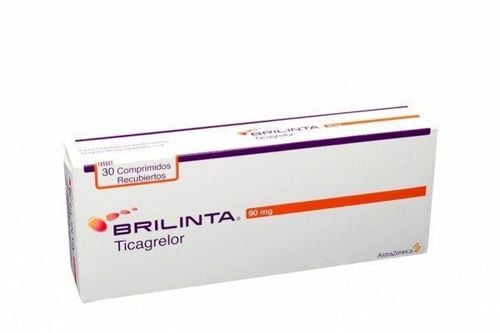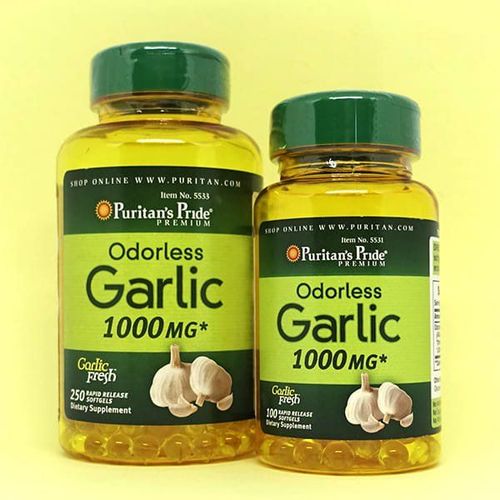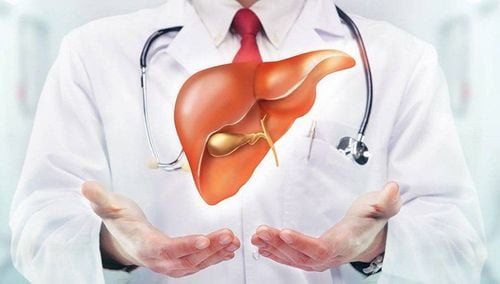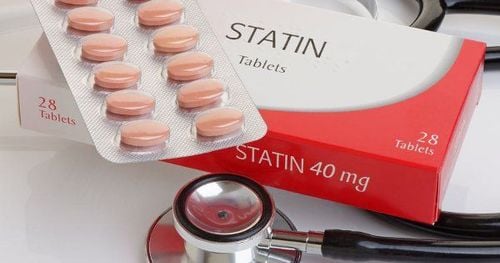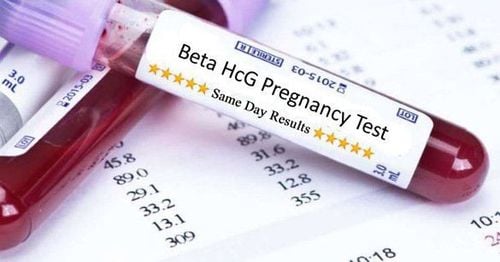This is an automatically translated article.
The article is professionally consulted by Associate Professor, Doctor, Doctor Le Ngoc Hung - Head of Laboratory Department - Laboratory Department - Vinmec Central Park International General Hospital.C-reactive protein (CRP) is a protein that increases blood levels in inflammatory and infectious diseases as well as during heart attacks, surgery, or trauma. Studies show that at low and constant levels of inflammation plays an important role in atherosclerosis, narrowing of blood vessels caused by increased cholesterol and other lipids.
The hs-CRP test accurately measures low levels of CRP to identify low and constant inflammatory responses, helping to predict the risk of developing cardiovascular disease.
1. What is a highly sensitive C-reactive protein test?
There are 2 quantitative tests for CRP and each test measures a different range of CRP in the blood for different purposes:
The CRP standard test measures mainly high levels of proteins that help diagnose inflammatory diseases heavy. This test measures CPR in the range of 10 – 1000 mg/L. Often indicated in the detection of inflammatory pathology (also known as C-Reactive Protein). The hs-CRP test accurately measures low levels of protein much lower than the standard CRP test mentioned above. This test now measures CRP in the range of 0.5 – 10 mg/L. This test is indicated to evaluate people at risk for cardiovascular disease. C-reactive protein (CRP) is a protein synthesized by the liver that is present in the classical acute phase of inflammatory reactions. This protein is the most sensitive acute phase reactant, and CRP levels rise rapidly during inflammation. CRP can rise in the blood during inflammation, infection, or after a heart attack, surgery, or injury.
Studies show that persistently low levels of inflammation are linked to atherosclerosis, a buildup of cholesterol and other lipids that narrow blood vessels. These conditions are often associated with cardiovascular disease (CVD). Cardiovascular disease is a disorder of the heart and blood vessels including: cerebrovascular disease, peripheral vascular disease, aortic atherosclerosis, thoracic or abdominal aortic aneurysms. To assess the risk of cardiovascular disease, in addition to factors such as lipids and lipoproteins, a high-sensitivity C-reactive protein (hs-CRP) test is also used. The hs-CRP test accurately measures low CRP levels (0.5 - 10 mg/L) to identify persistently low levels of inflammation, helping to diagnose cardiovascular disease risk in people who do not yet have the disease.
2. Indications and procedures for highly sensitive C-reactive protein

Xét nghiệm hs-CRP được chỉ định cho nam giới từ 50 tuổi trở lên và nữ giới từ 60 tuổi trở xuống có nguy cơ trung bình
2.1 Indications The hs-CRP test is used to assess the risk of heart attack and stroke. The test results will help the doctor find ways to reduce the risk of disease and reduce the risks caused by the disease. The subjects designated to perform the test are:
Men aged 50 years and older and women aged 60 years and younger with intermediate risk; Men and women older than the ages listed above, have an LDL-C lower than 3.33 mmol/L (130 mg/L) and meet certain other criteria such as absence of heart disease, kidney disease, or diabetes or inflammation; Indicated repeat for accurate diagnosis of patients with persistent mild inflammation or not. Specifically, when hs-CRP results are > 10mg/L, repeated hs-CRP measurements should be performed, optimally 2 weeks apart, with or without fasting in patients without infection or with acute illness. 2.2 Preparation for the test The patient may be asked not to eat or drink for several hours before the test; Patients should talk to their doctor about all the medications they are taking because they can affect the results of the test; Patients should talk to their doctor about the procedure, results, and risks of the test. 2.3 Performing the hs-CRP test Blood sampling: The healthcare worker wraps an elastic band around the arm to stop the blood flow, cleans the blood collection site with alcohol, places the needle in the vein, and fills the syringe with blood. . When enough blood has been collected, the medical staff will remove the bandage from the arm, place a gauze pad over the area where the needle was removed, and then bandage it; Take the blood sample to the laboratory, perform the test and return the results to the patient.
3. Value of highly sensitive C-reactive protein (hs-CRP) assay

Mang thai là một trong số những yếu tố ảnh hưởng tới kết quả xét nghiệm protein C độ nhạy cao
Highly sensitive reactive protein is used to show a patient's risk of heart disease and stroke. The risk groups are determined based on the quantification of CRP in the patient's blood as follows:
Low risk: < 1.0 mg/L; Moderate risk: 1.0 - 3.0 mg/L; High risk: > 3.0 mg/L. Factors that affect the results of a highly sensitive protein C test include:
Pregnancy; Patients taking non-steroidal anti-inflammatory drugs; Women who are postmenopausal or have been treated with hormones; Recent illness, tissue injury, inflammation, or infection; Have a chronic inflammatory disease (arthritis); Take statins. High levels of hs-CRP in healthy individuals are associated with an increased risk of stroke, heart attack, sudden cardiac death, or peripheral artery disease. People with high hs-CRP values have a higher risk of cardiovascular disease than those with low hs-CRP values.
*Note: Because hs-CRP levels are small and can vary due to many factors, this test should be done at least 2 times, preferably 2 weeks apart, for the most accurate results. At the same time, the hs-CRP test should be combined with tests such as total cholesterol, triglycerides, HDL-C, LDL-C,... to assess the risk of cardiovascular disease more accurately.
4. Significance of the highly sensitive C-reactive protein test
Hs-CRP reflects the risk of cardiovascular disease progression: The level of hs-CRP may increase from 0.5 mg/dL in patients with unstable angina to 20 mg/dL in patients with infarction acute myocardium; Hs-CRP reflects inflammation associated with atherosclerosis: An elevated hs-CRP value is a warning sign of the severity and progression of atherosclerosis; Hs-CRP reflects the degree of myocardial ischemia with myocardial necrosis; Hs-CRP reflects the amount and activity of local and circulating inflammatory cytokines; Hs-CRP is valuable in the diagnosis of treatment-resistant depression.
5. Several factors can decrease hs-CRP . levels

Sử dụng thuốc có thể làm giảm mức độ hs-CRP
Lifestyle changes: Maintain a healthy diet, exercise regularly, keep a healthy weight, control blood pressure, limit alcohol and quit smoking; Use of drugs: Use non-steroidal anti-inflammatory drugs such as aspirin, naproxen, ibuprofen or statin drugs as prescribed by the treating doctor; Use functional foods: Ginger, curcumin, fenugreek, green tea polyphenols, beneficial bacteria for the gut, Omega-3 fatty acids, vitamin C, vitamin D, vitamin E, magnesium, zinc,... as indicated. doctor. The highly sensitive C-reactive protein (hs-CRP) test is used to assess the risk of cardiovascular disease in healthy individuals and is a prognostic marker of recurrent disease, thereby assisting physicians provide a way to screen and treat the disease more effectively.
Vinmec International General Hospital is one of the hospitals that not only ensures professional quality with a team of leading medical doctors, modern equipment and technology, but also stands out for its examination and consultation services. comprehensive and professional medical consultation and treatment; civilized, polite, safe and sterile medical examination and treatment space.
Customers when choosing to perform tests here can be completely assured of the accuracy of test results.
Customers can directly go to Vinmec International General Hospital nationwide for examination or contact the hotline HERE for support.
MORE:
Role of C-reactive protein (CPR) in atherosclerosis What do the numbers in the CRP test results say? What is the CRP test and how does it work?




